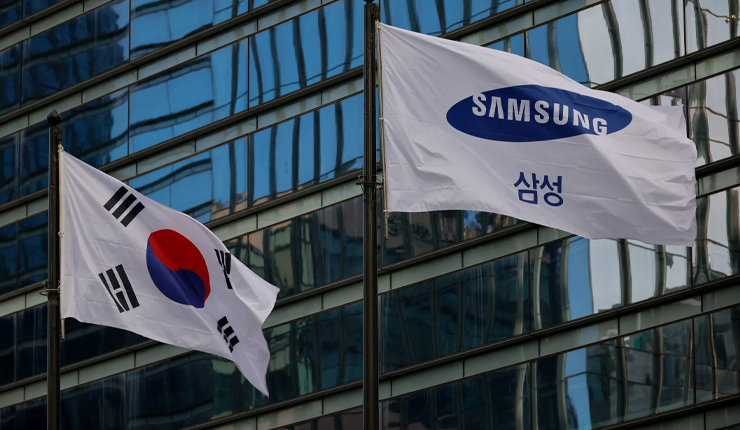Samsung Electronics is expected to invest $230 billion for the next 20 years to develop the world’s largest chipmaking base in South Korea, as a way to boost the country’s chip industry, Reuters reported on Wednesday.
The South Korean electronics company’s project, which is worth 300 trillion won, is a part of a private sector investment plan worth 550 trillion won announced by the government on Wednesday.
Samsung’s plans will include five chip factories and will attract 150 materials, parts and equipment makers, fabless chipmakers, and semiconductor research and development organizations near the South Korean capital, said the industry ministry.
The South Korean government’s plan is set to expand tax breaks and support, in order to create a more competitive environment in the high tech sectors that produce chips, displays and batteries.
This comes in light with other countries’ direction towards increasing domestic chip industries, like the US, which released details of its CHIPS Act last month, offering billions of dollars in subsidies for chipmakers investing in the country.
“The economic battlefield, which recently began with chips, has expanded, countries are providing large-scale subsidies and tax support, we must support private investments to ensure further growth, the government must provide location, R&D, manpower, and tax support,” the South Korean President, Yoon Suk Yeol, stated on Wednesday.
The government will also be budgeting 25 trillion won, for five years, for R&D in strategic technologies, like artificial intelligence, 360 billion won to develop chip packaging and 100 billion won to electricity and water infrastructure for industrial complexes.
Samsung Electronics, as well as its unit, Samsung Display, and affiliates, Samsung SDI and Samsung Electro-Mechanics, are set to invest 60.1 trillion won for the next 10 years in regions outside Seoul, to develop chip packaging, displays and battery technology.
The government proposed raising tax deduction rates for facility investments in chips and other strategic technologies in January, falling from eight percent to 15 percent for large corporations.
South Korea, which has the world’s two biggest memory chipmakers, Samsung Electronics and SK Hynix Inc., is working on improving supply chain stability, in order to have a major role in the non-memory chip field. The non-memory chip field is currently dominated by chipmaking giants like Taiwan Semiconductor Manufacturing Co Ltd and Intel Corp.
